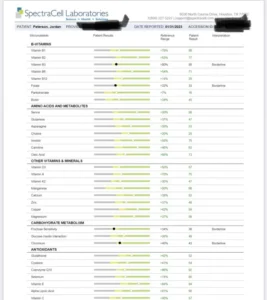I’ll start with a quick overview:
Unsaturated fats:
- Monounsaturated fatty acids have one double bond and polyunsaturated fatty acids have two or more double bonds.
- Foods like vegetable oils are high in polyunsaturated fats.
- Unsaturated fats will be liquid at room temperature because of the double bonds in the carbon chain.
Saturated fats:
- Saturated fatty acids have no double bonds in their molecular structure.
- Food like animal fats are high in saturated fats.
- Saturated fats will be solid at room temperature because there are more hydrogens in the carbon chains.
The medical community is switching over on their view of saturated fats. Right now they seem to be slowly being viewed as healthy. That’s great! It’s slow though, and most medical institutions still tell you saturated fats cause heart disease.

How did the view that a low-fat diet prevented heart disease begin?
One guy who didn’t do his studies properly. Story of modern medicine. Ancel Benjamin Keys was an American physiologist in the 1950’s. He was the one who postulated that saturated fat caused high cholesterol and that high cholesterol caused heart disease. He did a study (The Seven Countries Study) that looked at a number of different countries, and then chose the countries where there was an increased risk of heart disease and a diet high in saturated fats. Then he wrote a paper and told everyone that it was the saturated fats causing the heart disease, ignoring the countries where the information didn’t work. Chile had high rates of heart disease and diets low in saturated fat. And Holland and Norway had low rates of heart disease and diets high in saturated fat. Those countries were left out. This led to the conclusion that unsaturated fats were healthier than saturated fats and that’s when everyone started eating margarine over butter, and the war on meat really began.
Here’s a YouTube video that probably does a better job than I did explaining it.
Here’s a good article also explaining it better than I. And here’s some more information.
My “beef, salt, and water” diet is incredibly high in saturated fats (animal meat will also have some mono and polyunsaturated fats, but not nearly the majority). I’m getting about 80 percent of my calories from mostly saturated fat. Don’t be afraid of saturated fats!!! It’s outdated, and the original information was based on lies.





Funny how Ancel Keys misread his findings and created a generation of fat people. We are all different…personally I have eggs and olive oil every day for breakfast and work in coconut oil and other fats when I can. But then I eat this way for different reasons than you do.
Also ALL animals in nature are in constant ketosis, there is no animal in nature that runs on carbohydrates!
even cows convert grass into fatty acids!!
Low Fat HIgh Carb diets were also used in history to keep people weak and control them, it creates a lot of mental problems as well due to a lack of cholesterol etc.
Wow, that’s interesting! Any name or book to read more about keeping people weak and controlling them?
Do some research on it, the rabbit hole about our true natural diet (raw meat) goes very deep
Hey Mikhaila,
Do you get 80% of your calories from fat from just eating ribeyes? Do you add a side of fat?
If i’m eating 3 fatty steaks a day, am I getting enough fat to fuel my body? I feel lethargic all the time.
Must be something else going on, what else are you eating/drinking and for how long?
How long have you been doing it for? The first month can be hard. Make sure you’re eating enough salt (oversalt if anything!), and how many pounds of meat are you eating a day? What’s your height?
What I consume daily…
Vitamins/supplements:
– Multi-vitamin (gluten, soy etc. free)
– Vitamin B-complex
– fish oil
– 5 HTP
– Bulletproof coconunt oil
– Vitamin D
– 40mg Cipralex
– 125mg Wellbutrin
– collagen powder (for gut health/repair)
Meals:
– Fatty steak (at least 12 ounces), dosed pretty heavily with Himalayan salt. Side of spinach/lettuce salad dosed in salt and olive oil (sometimes, other times just the steak)
– 2-3 ground beef burger patties, heavy salt, dosed in olive oil
I also fry excess beef fat from butcher to eat as a side. Still depressed, still lethargic. Not going to lie, I’ve been on and off for about a 5-6 weeks. I sometimes cave and eat the occasional avocado, carrots, cucumber, or even peach to add sustenance because I can’t function day to day with no energy. I always end up giving up and cheating with aforementioned foods. It’s extremely debilitating seeing no improvements a couple weeks in to essentially all beef diet. When i started the diet I was going by the original less restrictive meal plan that included a variety of meat and greens. I think I may have to venture back to that, but I still remember being lethargic then.
I’m also BBQing all my meat. Am I losing all the fat that way?
If you’re searing your meat quickly, you don’t lose the fat. If you’re broiling it slowly, you’re left with a slab of protein concentrate with a little fatty water on the side.
I don’t add salt myself, as I can’t stand heavily salted foods. Comes from growing up with a father with severe kidney problems which caused the entire family to be on a strict low-sodium diet.
I do eat pork sausages several times a week though, which are pretty salty but frying them in the oven leeches a lot of the salt (and part of the fat) out of them, making them palatable for me.
And I use quite a lot of cheese in my cooking, which also brings in salt.
Are you getting enough salt? Lack of sodium can really affect energy levels.
Possibly. I don’t measure it. I just sprinkle it on my steak and beef. I did get a bloodtest and a negative result was that I was very dehydrated. Though I usually make sure I drink lots of water a day.
I eat ribs normally, which are a bit higher in fat. And I eat a lot of ground beef with added tallow. Ribeye I believe is about 70 percent
I’m not sure if you’ve ever shared a meal plan of what a typical day for you looks like (at least I don’t remember seeing one). Might be something to consider; I’d be interested to know.
could you please share what a regular weekly meal plan looks like for you.
Why don’t you eat eggs.
Toni do you not know whats up?? She simply eats beef and salt 2 times a day, as much as she wants.
no eggs because she cannot tolerate any food except beef.
same with her dad, and a lot of other people too.
To get extra saturated fat, especially early in the morning to get going, the only thing I have added to my beef/salmon/water diet is bullitproof coffee, which has 20g of saturated fat (from both ghee and coconut oil). The ghee has the casein and lactose removed.
Phinney and Volek documented the fatty acid breakdown in The Art and Science of Low Carbohydrate Performance. in Chapter 8 (fats) are two tables – plant fat and animal fat breakdowns. I can’t add the images to this comment, but 80/20 ground beef is 3/52/45% PUFA/MUFA/SFA. For those who want to dig a little more, I recommend the USDA Nutritional Analysis Lab database – https://ndb.nal.usda.gov/ndb/search As Amber (@Ketocarnivore) has documented, it’s not perfect. But it’s the best I’ve found.
Leave a comment